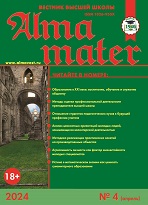http://dx.doi.org/10.20339/AM.02-16.072
V.A. Razumovskaya is cand. of Philology, prof.
e-mail: veronica_raz@hotmail.com
V.A. Kononova is cand. of Pedagogy, doc. e-mail: vkononova@sfu-kras.ru
Siberian Federal University
Presented is detailed analysis of topical actual issues, connected with realization of the strategy of life-long learning (LLL), i.e. principal vector and aim of development of modern educational systems. In that connection, given is definition of LLL strategy, that in the authors opinion, completely meets objectives and needs of knowledge-based society. The named strategy is considered by the authors in global and Russian contexts. In frames of realization of paradigm of LLL strategy, emphasized the authors, important role belongs to educational programs in foreign languages. In connection with that, particular emphasis in the article is being made on such actual problem of educational programs in foreign languages, as recognition of both non-formal and informal education, as well as on the mechanism of their integration into dominating in Russian VPO educational systems.
Key words: life-long learning, knowledge-based society, formal education, non-formal education, informal education, education in the field of foreign languages.
References
1. Didenko, D.V. Additional professional education and increase of it’s efficiency. In Continuing education in political and economic contexts. M., 2008, p. 78–107.
2. Kliucharev, G.A. Additional education as the problem of practice legitimization. In Continuing education in political and economic contexts. M., 2008, p. 108–119.
3. Federal Law “On Education in the Russian Federation”. M., 2014.
4. Oleynikova, O.A,, Muravieva, A.A., Aksyonova, N.M. Lifelong learning as a tool for the Lisbon strategy implementation. M., 2009.
5. Telegina, G.V. Lifelong learning: institutionalization in European context and it’s evaluation. In Continuing education in political and economic contexts. M., 2008, p. 16–37.
6. Guile, D. The Learning Challenge of the Knowledge Economy. Rotterdam-Boston-Taipei, 2010.
7. Ritchey, J.A., Muchtar, N. Exploring the Complexity of Cross Cultural Research. PAACE Journal of Lifelong Learning, 2013, vol. 22, p. 81–94.
8. Yang, Jin. Recognition, Validation and Accreditation of Non-formal and Informal Learning. Hamburg, 2015.











.png)






